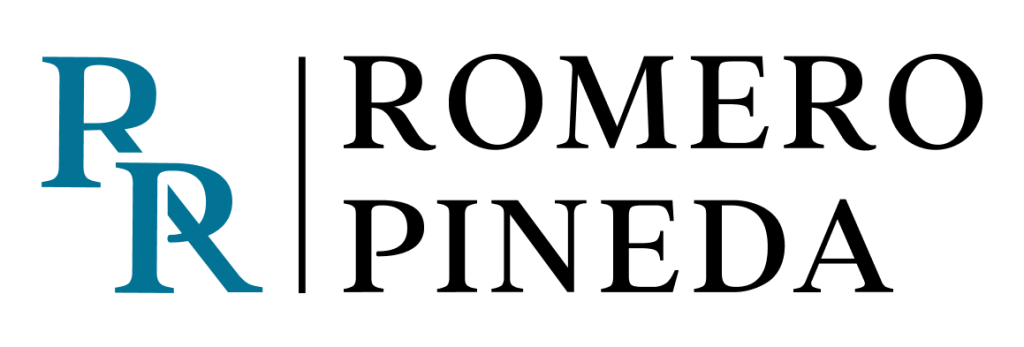
Regulation of the Law "Love Turned into Food for the Promotion, Protection, and Support of Breastfeeding," in compliance with Article 56 of the respective Law.
By: Feridee Alabi
On Tuesday, October 31, 2023, the “Regulation of the Law 'Love Turned into Food for the Promotion, Protection, and Support of Breastfeeding", was published in the Official Gazette, in compliance with Article 56 of the respective Law.
This regulation establishes obligations for employers that are mandatory, and violations carry penalties ranging from minor to very serious.
The provisions of the Regulation apply to both public and private employers and any other entity that employs pregnant women and breastfeeding mothers or provides services to them and infants.
The Competent Authorities involved in the enforcement of the obligations dictated by the Regulation are:
- Ministry of Health (MINSAL): In its capacity as the governing body of the Integrated National Health System (SNIS), it is responsible for ensuring compliance with the Law and the Regulation. It will also provide guidance and coordinate measures and actions for the protection, promotion, support, and prioritization of the right to breastfeeding.
- Ministry of Labor and Social Welfare (MTPS): It will oversee and verify compliance with employer obligations arising from the Law.
This regulation governs the way in which Breastfeeding Rooms should be implemented in both public and private institutions where women of childbearing age, pregnant women, and breastfeeding mothers work or visit.
Among the relevant aspects of the Regulation, the following should be considered:
- a) Three modalities are implemented for the installation of Breastfeeding Rooms in accordance with the following criteria:
- When the number of women working in or visiting the institution is equal to or greater than 25, permanent breastfeeding rooms must be implemented for the extraction and preservation of breast milk or for breastfeeding their children.
- When the number of women working in or visiting the institution is less than 25 but greater than 10, the provisions issued by the Ministry of Health regarding a flexible modality will apply. This includes a temporary, suitable, and hygienic space for the extraction and preservation of breast milk.
- When the number of women working in or visiting the institution is less than 10, they must request free technical support from the Office for the Promotion, Protection, and Support of Breastfeeding for the establishment of these spaces.
- For cases of shared spaces among different establishments, such as shopping centers, plazas, markets, hotels, or other public spaces, a common space for the purposes must be established.
- b) Permanent Breastfeeding Rooms must operate during the business hours of each institution or establishment and must never remain closed or inaccessible, always being available to women.
- c) The Breastfeeding Room must comply with the technical regulations of the Ministry of Health for its installation and operation. The Ministry of Health, through the Office for the Promotion, Protection, and Support of Breastfeeding, will authorize the implementation and operation of Breastfeeding Rooms. For this, an authorization request must be submitted to this Office, after which an evaluation visit will be conducted, and the respective permit will be granted. The authorization will be valid for 2 years, and must be renewed after said period. The Ministry of Labor and Social Welfare will keep a registry of Breastfeeding Rooms.
- Every working woman, once her maternity leave has concluded, will have the right to a daily break of 1 hour in her working day, which may be divided into 2 breaks of 30 minutes each or as many times as agreed with the employer for the purpose of breastfeeding. your child or collect your milk. This benefit will be given for a period of 6 months from the date of birth. In those cases where, due to company custom, the right to breastfeed is greater in terms of period and benefits, custom will prevail.
- e) Before returning to work, every woman must inform her employer, through the form prepared by the Ministry of Health, of the schedule she will take to exercise her right to breastfeed. The employer cannot deny the schedule informed by the mother but may agree with her on the division of the interruption when it exceeds 2 breaks. These breaks must be counted as effective and paid working hours.
- f) In cases where a woman's working day exceeds 8 hours, she will have the right to a second break in her day to exercise the right to breastfeed, which will also be 1 hour and can be divided as agreed by the parties.
- g) Once the 6 postpartum months are completed, every breastfeeding mother can extract and preserve her milk for the time she decides to extend her breastfeeding, being able to use the Breastfeeding Room designated for this purpose during her break as provided in her regular working hours.
These obligations will be enforceable from February 6, 2024, which marks 90 days after the entry into force of the regulation on November 8, 2023.
Regarding sanctions, the Regulation refers to the "Law Love Turned into Food for the Promotion, Protection, and Support of Breastfeeding." This referral is important as it complies with the "Principle of Legal Reserve" necessary for the effectiveness of the sanctioning power of the competent authorities. The Law categorizes offenses as minor, serious, and very serious.
The Law categorizes offenses as minor, serious, and very serious.
The sanctions to be applied to offenders are:
- A) Written reprimand for minor offenses.
- B) Fine of five to ten monthly minimum wages in the commerce and services sector for serious offenses; and
- C) Fine of eleven to fifty monthly minimum wages in the commerce and services sector for very serious offenses.
In the case of very serious offenses, in addition to the fine, one or more of the following ancillary sanctions may be imposed:
- a) Restitution measures such as campaigns, paid advertisements, and other advertising media for the promotion, protection, and support of breastfeeding
- b) Confiscation of products, didactic and promotional material; and c)
- Final closure of the establishment
The sanctions do not exclude any other criminal, civil, or administrative liability that may arise.
If you need specialized advice on the subject, do not hesitate to contact me at my email falabi@romeropineda.com.

